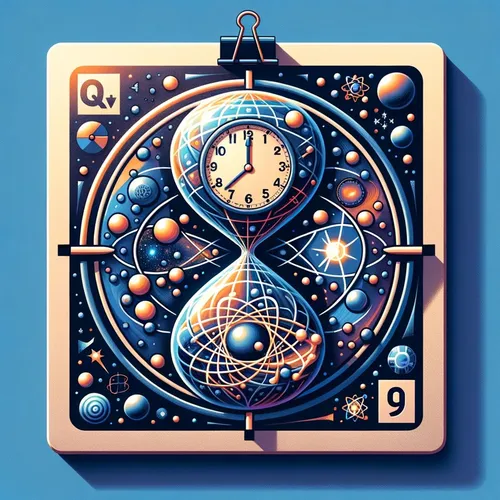Quantum Computing Simulator: Hands-On Learning for Beginners | IEEE Quantum Week Highlights
- Author
- Quiet. Please
- Published
- Mon 01 Sep 2025
- Episode Link
- https://www.spreaker.com/episode/quantum-computing-simulator-hands-on-learning-for-beginners-ieee-quantum-week-highlights--67584061
This is your Quantum Basics Weekly podcast.
Tonight, the boundary between classical and quantum blurs right before your ears. This is Leo, your Learning Enhanced Operator, and if you’re tuning in for practical insights, you came at exactly the right moment—a new educational tool has just dropped that’s primed to reshape how we learn quantum computing. Earlier today, the IEEE Quantum Week introduced a hands-on tutorial: “Quantum Machine Learning for Absolute Beginners,” featuring an open-source quantum computer simulator. This resource goes beyond theory, letting first-timers actually code quantum programs, see qubits interact, and experiment with real algorithms—all without needing prior quantum experience.
Imagine a classroom not of chalk dust, but of cooled dilution refrigerators, where superconducting qubits whisper at temperatures colder than deep space. These machines—IBM, Rigetti, IonQ—are no longer reserved for PhDs alone. Tools like this simulator turn quantum from distant myth into daily practice. The difference is dramatic: as I watched students code a quantum support vector machine this afternoon, the tension in the room was palpable—part theatrical debut, part high-stakes science fair.
Let me paint the quantum scene. You begin with a single qubit; unlike a classical bit, it’s not fixed at zero or one, but can float in a delicate superposition, both at once, governed by probability amplitudes. When you entangle two, their states are instantly connected—even across vast distances. It’s Einstein’s “spooky action at a distance” made routine. The simulator brings this drama to the fingertips of anyone with curiosity, not just math elites.
And it’s not just educational: these hands-on sessions are directly inspired by IonQ’s recent breakthroughs, showcased this week in Denver at IEEE Quantum Week. IonQ’s team, including Masako Yamada and Martin Roetteler, presented hybrid quantum-classical models that accelerate linear algebra and even allow fine-tuning of quantum language models. It’s all happening live—quantum algorithms are tackling grid optimization, fluid dynamics, and property prediction in chemistry[7]. This is not routine computing. It’s as if each algorithm is a well-rehearsed cast, performing on a stage where randomness and interference serve as both script and set.
Dramatic? Absolutely. As the Fraunhofer Institute launches new certification courses this month in Berlin, and Purdue University prepares its Quantum Science Workshop, the world of quantum education broadens further. These developments prove that mastering quantum is transitioning from solitary study into hands-on teamwork. If you can follow a recipe or build a LEGO set, you can now experiment with quantum algorithms.
The parallels to today’s headlines fascinate me. Just as collaborative AI models now generate art and predict weather, scalable quantum computing empowers us to model molecules, encrypt data, and refine medical diagnostics. Much like superposition, our roles as learners and innovators weren’t mutually exclusive—until now.
For those eager to start their journey, that new quantum simulator marks the next leap. So I urge you: ask your questions, test your curiosity. Quantum is accessible. Thank you for listening. If you ever have questions or a topic you want on air, just send an email to [email protected]. Don’t forget to subscribe to Quantum Basics Weekly. This has been a Quiet Please Production. For more information, check out quiet please dot AI.
For more http://www.quietplease.ai
Get the best deals https://amzn.to/3ODvOta
